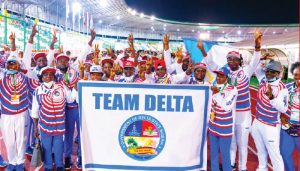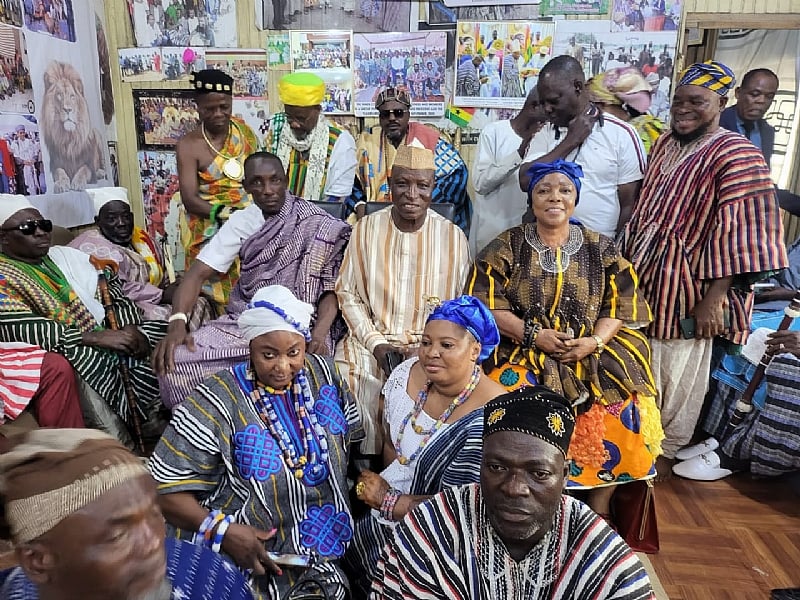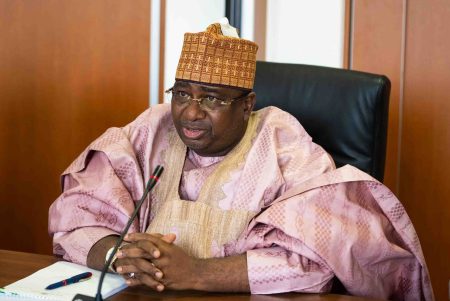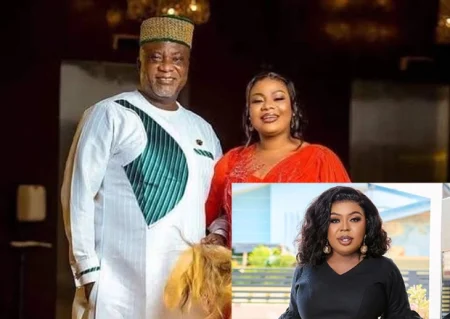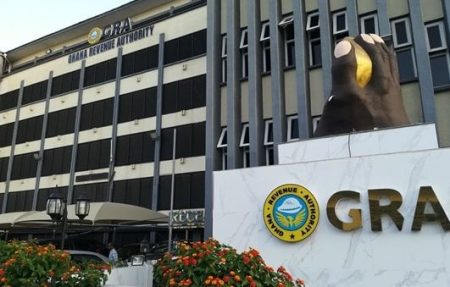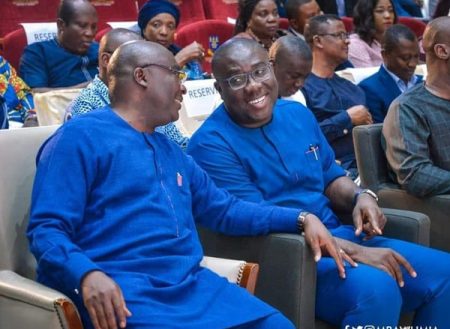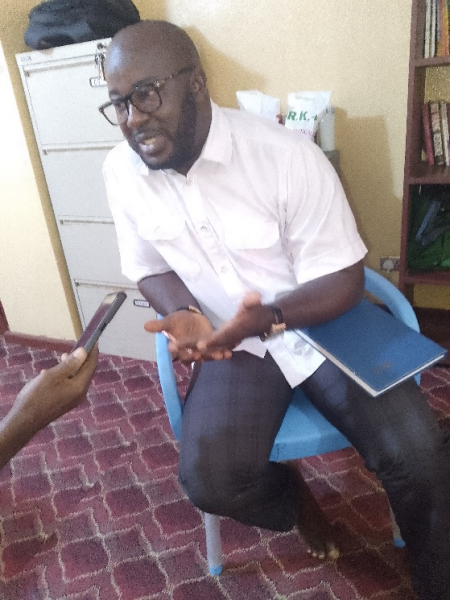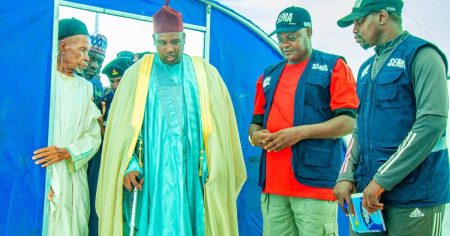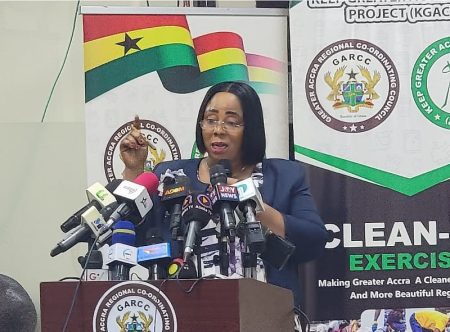The meeting between the National Coordinator for Zongo Development, Hon. Alhaji Baba Lamin Abu Sadat, and the Council of Inner-City Tribal Chiefs and Queen Mothers in Accra marked a significant step towards collaborative development efforts for Zongo and inner-city communities. This engagement, facilitated by the Council, brought together influential traditional and religious leaders, including Chiefs, Imams, Queen Mothers, a Bishop, and community leaders, fostering unity and reaffirming a shared commitment to progress. The meeting was unprecedented, setting the stage for a new era of partnership between the Zongo Development Coordinator’s Office and the Council, promising a more inclusive approach to development initiatives.
Chief Dr. Mohammed Sungtaaba, President of the Council, expressed gratitude for the Coordinator’s outreach while also addressing historical concerns. He highlighted the Council’s long-standing role in maintaining peace, combating crime, and promoting social cohesion in urban areas, despite only being formally registered four years prior. Emphasizing the Council’s non-political and non-religious nature, with members from diverse ethnic and faith backgrounds, Dr. Sungtaaba underscored their sole focus on community development. This clarification serves to solidify the Council’s position as a unifying force dedicated to the betterment of its constituents.
The Council presented a comprehensive set of requests designed to address the challenges faced by inner-city youth, notably focusing on employment opportunities. They appealed for access to positions within the Ghana Army, Police Service, Immigration Service, Fire Service, and other security agencies. This request reflects a desire for greater representation within these crucial sectors and aims to provide avenues for economic empowerment and social mobility within the community. Furthermore, they sought access to training opportunities in nursing and teaching, expanding the scope of professional development for inner-city youth.
In addition to employment and training opportunities, the Council also addressed specific needs within their community. They requested annual Hajj slots for their Muslim members, recognizing the importance of this pilgrimage in their religious practice. The Council also raised the issue of accommodation facilities for members traveling from other regions for meetings and engagements, emphasizing the need for logistical support to facilitate their participation. These requests demonstrate the Council’s commitment to meeting the multifaceted needs of their diverse membership and highlighting the practical considerations required for effective community engagement.
Hon. Abu Sadat’s response emphasized accessibility and collaboration. He urged the Chiefs and Queen Mothers to view him as a direct conduit to the Presidency, emphasizing his commitment to serve as a “bridge” between the community and the highest levels of government. This approach signals a departure from potentially bureaucratic barriers, fostering open communication and facilitating a more direct response to the needs of the community. He underscored his proactive decision to establish his office outside the Flagstaff House, prioritizing accessibility and direct engagement with the people.
Hon. Sadat pledged to address pending issues from his predecessor’s tenure, ensuring continuity in development efforts. He reiterated President Mahama’s prioritization of peace and unity, urging the Council to continue its vital work in promoting harmony across diverse communities. This commitment to continuity and collaboration underscores the importance of sustained efforts in addressing long-standing challenges and building upon previous progress. He invited open communication, encouraging the Council to document their concerns and provide guidance as needed, fostering a collaborative approach to problem-solving.
Beyond this specific meeting, Hon. Sadat outlined broader consultations with Zongo Chiefs, Christian leaders residing in Zongo communities, and other stakeholders. This wider engagement demonstrates a holistic approach to development, recognizing the importance of inclusivity and diverse perspectives in finding lasting solutions. He reaffirmed that the well-being and advancement of Zongo and inner-city communities remain central to his mandate, solidifying his commitment to prioritize these areas in his work.
The meeting concluded with a renewed sense of partnership and optimism. Both Hon. Sadat and the Council of Inner-City Tribal Chiefs and Queen Mothers expressed confidence that their collaboration would yield tangible benefits for the Zongo and inner-city communities throughout Ghana. This positive outlook underscores the potential for impactful change when government officials and community leaders work together, addressing concerns and implementing strategies that benefit all members of society. This collaborative approach promises a brighter future for Zongo and inner-city communities, built on mutual respect, open communication, and a shared commitment to development. The meeting marks a pivotal moment in the pursuit of progress and underscores the importance of inclusive governance in addressing the needs of diverse communities.



